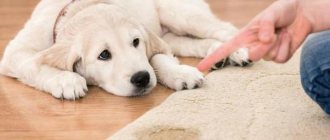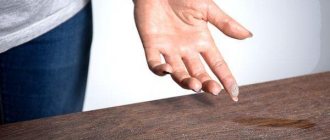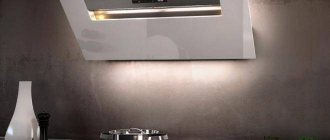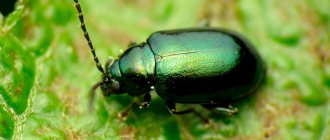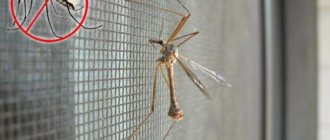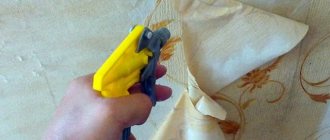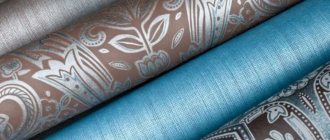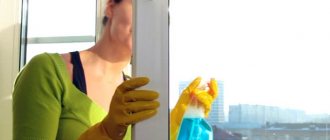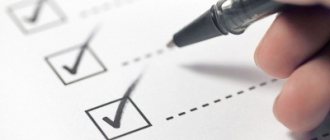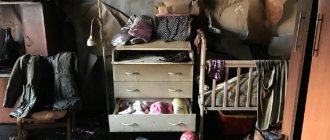We understand the seriousness of the situation with COVID-19, the lack of specialized disinfectants and antiseptics, and masks in the pharmacy, so we have prepared a number of articles on how to deal with the virus in conditions of shortage - it’s free. In our store all disinfectants are in stock and at low prices.
The threat of infection with the new dangerous virus Covid-19 has forced many to take much more careful care of cleanliness and safety in their homes, apartments, and businesses. Many people replenished their stocks of antibacterial disinfectants from pharmacies, replacing their usual household chemicals. The basis of disinfectants is alcohol, 70% vodka, bleach. Auxiliary components include iodine, hydrogen peroxide, antifungal mixtures, antibacterial liquids, essential oils. What antiseptics are best to disinfect a house, apartment, office, and how to do it correctly, we will tell you further.
How does standard apartment cleaning differ from disinfection?
What the housewife does every day is the usual cleaning procedures designed to remove dust and dirt from surfaces, deposits on ceramics and faucets, and sand on the floor. Cleansing is fundamentally different from disinfection, without which, in a global pandemic, it is impossible to feel protected, even if not 100%.
Disinfect means using special safe antibacterial and antiviral agents containing substances that destroy most pathogens from viruses and bacteria to fungi.
The virucidal activity of antiseptics for house cleaning lies in the ability to destroy the protein shells of viruses, thereby disrupting their vital processes and ability to reproduce. If the disinfectant also contains antibacterial and antifungal components, the protection is enhanced and the home interior becomes safe.
Kinds
At all times, women washed the floor with powder diluted in warm water. Some housewives replaced it with a soap solution, claiming that this would kill more bacteria and germs. But, unfortunately, neither the soap, nor the powder, nor the scrapers used cleared the floor of dirt 100%.
With the development of technology, new detergents have appeared that make the cleaning process easier. Now you don’t have to put in a lot of effort to clean this or that coating, the floor surface is not scratched, and there are no greasy stains or streaks left.
More than half of the products are produced in liquid form. A high-quality floor cleaner is classified according to certain characteristics: composition, release form, concentration, presence of flavors and fragrances. Before purchasing something, housewives should read its description, especially when the family has a person with allergies or small children.
How to properly disinfect an apartment, office, industrial premises of enterprises?
When disinfecting an apartment, house, or business, there are several rules regarding the cleaning of rooms and surfaces for different purposes. The frequency of disinfection measures depends on how strictly family members observe quarantine, whether they go to work or do not leave home, and whether there is a person among them with illness or symptoms of respiratory diseases.
Recommendations on how to properly disinfect an apartment.
- Several times a day, disinfect those surfaces in the room that most people come into contact with. These are door handles, table surfaces, toilet (toilet lid and cistern), toilet paper holder, switches.
- Wet mop and clean the floor 1-2 times a day, more often in the children's room, especially if there are small children crawling and playing on the floor.
- In the bedroom and kitchen, the handles of dressers, drawers and cabinets, the door and the handle of the refrigerator must be disinfected.
- Remove trash from your home trash can every day and periodically disinfect it with antibacterial disinfection.
- Disinfect faucets in the bathroom and kitchen several times a day, preferably after each use or after returning home from outside.
- Pay special attention to the TV remote; for easy cleaning, it is placed in a case.
- In each room, clean the walls, ceiling, and doorway in a manner that is suitable for the existing surfaces.
- Sponges, rags, floor rags, reusable wipes used for disinfection should not be used for other purposes.
- Store everything used for cleaning in a separate container and soak in solutions after each cleaning.
- Carry out disinfecting cleaning wearing gloves also intended for the intended use.
- After cleaning, ventilate the apartment or house well to reduce the concentration of harmful fumes.
Disinfecting disinfection is always preceded by the classic cleaning of surfaces in the house and apartment from dust and dirt, and washing the floors.
Cleaning and disinfection of office, public premises and enterprises includes 3 stages.
- Cleaning the premises from visible contaminants.
- Sanitary cleaning and treatment of certain areas of the premises.
- Disinfection of all surfaces, including floors, walls, doors, equipment.
For effective cleaning and antiseptic treatment of premises, enterprises and offices use automated systems in combination with manual labor. Office equipment and enterprise equipment are treated with special care using special means. Screens, keyboards, faxes, telephones are wiped with napkins and rags soaked in disinfectant solutions. It is important to clean and disinfect the ventilation system.
Rules and stages of cleaning surfaces
Rules for cleaning with products that have disinfection properties include observing the order of work and observing safety measures.
The procedure for floor cleaning and disinfection should follow the following algorithm:
- Free the floor surface from foreign objects that may interfere with thorough cleaning.
- Remove children and pets from the treated area.
- Provide good ventilation.
- Sweep and remove debris.
- Pre-wash the surface with a regular cleaning agent.
- Prepare a floor cleaning solution according to the instructions for the specific product, paying attention to particularly dirty areas.
- If a disinfectant product requires rinsing off, rinse the surface with clean water.
- Ventilate the room.
- Allow the floor to dry after wet cleaning.
Types of disinfectants by composition and purpose
The most popular and widely used in households, businesses and offices are safe disinfectants based on alcohol and chlorine. The best antiseptic should contain 70% alcohol (ethanol, propanol) or 56% active chlorine. Both types of products are effective against most pathogens and protect by 95% or more. But they cannot be used safely on all types of home surfaces and premises.
Thus, alcohol-containing ones are ideal for treating the skin of hands, plastics, metal products (door handles), chipboard, MDF, and stone. Metal products cannot be disinfected with chlorine-containing products, since chlorine causes corrosion of metal and is also unsafe for hands.
Ideally, both types of products should be used to disinfect the premises of a house or apartment. This increases the degree of protection against viruses and bacteria and allows you to competently treat surfaces of various purposes and origins.
Keep in mind that chlorine has an unpleasant odor that slowly evaporates, but surfaces treated with it in a house or apartment remain sterile and safe for a long time. Alcohol also has an odor, but it evaporates from the premises in a short time, and along with this the high degree of protection disappears.
Traditional methods of floor disinfection
DIY floor disinfectant
How to do:
- Shaving foam will help remove greasy stains. To do this, you need to apply it to the contaminated area, let it stand for several minutes, and then rinse with water.
- Ammonia is a homemade floor disinfectant that will help cope with dirt and unpleasant odors. For a bucket of water you will need 1/3 of a bottle. The resulting solution should be used to wash the floors. Ethyl alcohol should not be used for disinfection, since modern materials often do not withstand such experiments. Therefore, you need to use proven cleaning methods so as not to spoil the color of the floors or compromise their integrity.
IMPORTANT! A mixture of bleach and alcohol has a detrimental effect on the appearance of floors.
- To have a pleasant aroma in the house, it is necessary to carry out aromatization. Essential oils, such as fir, pine needles, lavender, disinfect the air and give the apartment a pleasant aroma. As a result, clean floors and aromatherapy await you.
- In order to clean and disinfect surfaces, you can use a vinegar solution. To do this, dilute 1 glass in 5 liters of water. This product cleans linoleum, vinyl flooring, and tiles well. Wooden floors can be treated with this solution with caution. This is because the wood is usually coated with oil, varnish, paint or wax. Vinegar just removes the wax.
REFERENCE! You can try this method on an inconspicuous area to see what effect it has on your finish. You should not use vinegar solution on granite or marble floors as it will attack the stone. Adding essential oils to the solution can reduce the vinegar smell, which will disappear completely after drying.
- To make the floors shine, you can add a few drops of vegetable oil to any of the solutions. However, you need to know that oil tends to accumulate, so you can’t do this often.
- Linoleum washes well with linseed oil, which must be mixed with vinegar in a 1:1 ratio. Rub the floors with this product and leave to dry. If there are scuffs or strange marks on the floor, you need to wipe it thoroughly before you start rubbing in the prepared solution.
- Apple cider vinegar will remove plaque and stains. Thanks to its soft action, it can be used to clean various types of coatings.
- Floors may have mineral deposits left behind from hard water. A very effective recipe is suitable for this: you need to add 2 tbsp to 5 liters of detergent. soda
- After washing, linoleum can be polished with vinegar. To do this, dilute 6 tablespoons in 5 liters of water. vinegar, as well as 4 tbsp. polishing for furniture. The prepared solution is used to wash the floors.
- Various stains can be removed using washing powder. Contamination should be covered with powder and a drop of lemon juice or citric acid should be added to it and water should be added. You need to leave it like this for a couple of minutes, then wash it.
REFERENCE! You need to understand that affordable products are always available at home; you can easily save your budget on chemicals for floors. Moreover, traditional methods are in no way inferior in effectiveness to purchased ones and also kill viruses, bacteria, and get rid of stains and stains.
Rules for working with professional floor disinfectants
When working with household chemicals suitable for disinfection, for example, Tenzi, Passion Gold, Promto), you must follow the rules for protecting the skin, respiratory tract, and eyes.
Floor cleaning rules are as follows:
— you should not immediately start washing the floors; first you need to try the product on an inconspicuous area of the floor to avoid unnecessary problems;
— the skin of the hands must be protected from unwanted effects by wearing rubber gloves;
— you must adhere to the rules prescribed in the instructions; you should not experiment in this matter;
— you need to remove all unnecessary things from the surface in order to treat as large an area as possible;
— first you need to clean the existing stains with a washing solution and apply a disinfectant;
— after general cleaning, you need to wash off the remaining cleaning solution;
- ventilate the apartment by opening the windows to let in fresh air;
— after all cleaning, wipe the surfaces with clean water;
- in this matter, a comfortable mop is important, which will help you with cleaning and save time, and will not cause you inconvenience in the form of new calluses.
Floor cleaning products
It is better to disinfect the floor with liquid concentrates containing chlorine. They are safe and easy to use, as they are diluted in water and perfectly disinfect the surface. There are a huge number of such items among industrial household chemicals; you can choose and buy them with any scent and concentration of active chlorine in a pharmacy or store. Effective disinfectant options:
- Septolite Light;
- Proklin Oldey;
- Demos.
The main thing is to remember that floor disinfection is the final stage of the overall treatment of the house. It is preceded by sanitary cleaning of tiles and plumbing fixtures in the bathroom and toilet, also with chlorine-containing compounds. The priority is gels or sprays, wipes for door handles.
The best concentrated products
Concentrated disinfectants for apartments are economical. Please note: the concentrate must be diluted with water, strictly following the instructions, in the recommended proportions. That is why modern packaging is equipped with a measuring cap for easy dosing.
IMPORTANT! It should be recalled that household chemicals should be stored out of the reach of children. Give preference to those products that are bottled with a lid that has a “child-proof” function.
Meine Liebe
The antiseptic is suitable for washing any floors in the house: linoleum, laminate, parquet, tiles, porcelain tiles, plastic. It washes away even old dirt, easily cleans surfaces and gives them a shiny new look. It is water-repellent, has a pleasant smell and takes good care of natural materials. "Meine Liebe" does not leave streaks or marks on the floor. There is no need to rinse it off with clean water.
The concentration of surfactants (surfactants) is no more than 5%. The product is biodegradable, does not contain aggressive chemicals, does not pose a health hazard and does not cause significant harm to the environment. With regular use, a liter bottle lasts for 1.5-2 months.
A special feature is the possibility of using it in washing vacuum cleaners. From customer reviews it follows that this concentrate can cause irritation and peeling of the skin of the hands, therefore it is recommended to use rubber gloves and not exceed the dosage of the product.
The homeland of this brand is Germany. Today the company also owns enterprises in Italy and Russia.
Grass Floor wash strong
Antibacterial, high concentration alkaline detergent. Designed for domestic and public needs. Effective for heavy household and street pollution.
“Grass Floor wash strong” is used by professional cleaning companies for regularly scheduled cleaning of premises with large and frequent crowds of people: hotels, sports complexes, supermarkets, business centers, social institutions.
It is imperative to use personal protective equipment; the drug can cause irritation to the skin and mucous membranes when working with a high concentration solution. If there is no reaction after the test, you can regularly use the gel to clean the floors in your home and apartment. The manufacturer produces the product in liter and large-sized packaging - plastic canisters with a volume of 5.6 liters, which is much cheaper.
Bagi Oranit
The popular Israeli quality brand has a constant circle of loyal customers in Russia, neighboring countries, Europe, etc.
"Bagi Oranit" is a reliable protector of a clean floor in your apartment. The concentrate is thick, used sparingly, and is universal for all surfaces. After washing it does not leave streaks and does not require additional rinsing. Works great on grease stains and food crumbs in the kitchen.
Contains up to 15% surfactants. A pleasant addition to the excellent physical and chemical characteristics is the antistatic effect of the detergent, which makes the floor dust-free for a long time and shiny. It has a pleasant, unusual smell of candy or chewing gum, which is very popular with children and many adults.
It must be added to water in accordance with the manufacturer's recommendations. If the dosage is exceeded, the product will foam heavily and leave streaks on the floor.
Disinfection of metal surfaces (including door handles)
To treat metal surfaces, alcohol-containing or oxygen-containing compounds are used. They do not affect the metal surface, but cope well with pathogenic organisms.
The priority is alcohol-containing disinfectants for apartments and houses - sprays or wipes that have high virucidal activity. Here is a list of safe and effective disinfectants for cleaning the house according to user reviews:
- Septolite Tetra;
- Aquaminol spray;
- Lavoll.
What to wash with: criteria for choosing a product
There are many products on the market from various manufacturers , domestic and foreign. Among them there are concentrated formulations that are biodegradable.
The products are produced in various volumes, according to the original recipe. You should pay attention to the volume of packaging.
Some products are highly concentrated, and even a small bottle can last for a long time.
You should be especially careful when choosing a cleaning product when there are children or allergy sufferers in the house. Not every household chemical is suitable for septic tanks .
Depending on the severity of the problem, it may be necessary to disinfect not only the floor, but also other surfaces, using separate products for these purposes.
Disinfection of home furniture and air
For antiseptic care of furniture, gentle compositions with caring components are used: polishes, oils, ammonia, etc. It is safe to carry out antiseptic cleaning for most surfaces with such means as:
- Proklin Oldey;
- Remedin spray;
- Eco Breeze (napkins).
To safely disinfect the air at home, use a 70% ethyl alcohol solution. Disinfection is carried out by spraying from a spray bottle; all surfaces in the apartment are additionally treated. It's good if you have an air purifier at home. It serves as additional protection. Absolute medical alcohol 96% from a pharmacy cannot be used as an antiseptic. Ethanol works more effectively in combination with water.
Fire retardants – fire protection
Fire-retardant impregnations protect wood from thermal destruction, that is, from ignition under the influence of heat or fire. The chemicals that make up fire retardants create compounds at high temperatures that prevent ignition or flame spread. Naturally, fire retardants are not a complete fire protection guarantee. They allow wooden surfaces to resist thermal aggression, but only for a short time (about 10-15 minutes when heated to 700˚C).
Fire retardants are recommended to be used to protect wooden floors in rooms where there is a source of ignition - a stove, fireplace, etc.
Based on their mode of action, fire-prevention impregnations are divided into 2 groups. The first includes fire retardants that prevent combustion. The second - blocking the spread of fire.
Fire retardants, which prevent combustion, begin to release non-flammable gases when the temperature rises. They push air away from the surface of the wood and thereby make combustion impossible.
Blocking flame retardants form a special film on the surface of the wood. When exposed to fire, this film swells and blocks the access of oxygen (necessary for combustion) to the protected surface.
Paints, primers, varnishes, plasters, etc. can be applied over fire retardants. Fire-fighting impregnations are often used in tandem with antiseptics. For best results, it is recommended to first apply a layer of antiseptic to the surface, then a fire retardant. For example, you can use the following scheme: the first 2-3 layers are Neomid 400 antiseptic, the next 2-3 layers are Neomid 530 fire protection.
Types of disinfectants by form: liquids, gels, tablets, sprays, wipes
How to safely disinfect a house, and in what form should you choose the best antiseptic? Below are the pros and cons of gels, powders, liquids and wipes.
- Gels and thick emulsions (for example, Dr.Grams, Domestos) are effective for cleaning plumbing fixtures, washbasins, tiles, and toilets. They do not damage the surface, dissolve deposits and plaque well, and are not hazardous to the respiratory tract.
- Powders and other bulk compounds contain small abrasive particles that can damage the surface. Another disadvantage is the high probability of getting into the human respiratory tract, which causes irritation of the mucous membranes and allergies. If the housewife prefers this form of household chemicals, she should open the window or put on a mask before cleaning. It's safer this way. Bulk antiseptics for house cleaning such as Multidez and Komet have proven themselves to be the best.
- Liquid disinfectants (for example, Desital, Sanaclin Active) are best suited for treating mirror surfaces, glass, induction cookers, and furniture facades. They do their job well and are easy to use. It is also recommended to work with them in a bandage.
- Tablets, capsules. They require dissolution in water, are easy to use, and do not take up much space during storage. Suitable for disinfecting floors, dishwashers and washing machines. For home cleaning, Javelion Noverti chlorine and Desitabs tablets are used.
In everyday life, alcohol-based wet wipes are often used for express disinfection. It's very convenient and fast. But this method is more likely to be additional than basic. The main antiseptic treatment of surfaces in the premises of a home or business that are often touched by people should be carried out with alcohol-containing sprays and supplemented with napkins. They are convenient for treating door handles, toilet lids and desktop surfaces.
When using any antiseptics to clean your home or apartment, carefully study the instructions for use. Do not leave household chemicals on the surfaces of objects longer than indicated in the instructions, do not use them on surfaces not listed, use personal protective equipment if recommended by the manufacturer. To do this, just buy a mask and gloves at the pharmacy. You can and should disinfect your home correctly and safely for your own health.
Precautionary measures
Work with household chemicals for floor disinfection should be carried out taking into account the following requirements:
- organization of good ventilation;
- absence of animals and children in the premises;
- use of rubber gloves when working;
- Avoid getting the disinfectant on open areas of the body and mucous membranes;
- do not use expired medications;
- use the products according to the instructions for the specific drug;
- unless otherwise specified by the manufacturer, floor care products should not be used to treat other items;
- rags used for floor disinfection should not be used for other purposes;
- Do not mix several products together at once.
Do not exceed the dosage of chemicals when diluting.
What safe antiseptics can I buy in a pharmacy or store for different areas of my apartment or house?
Disinfectants for cleaning rooms in the house are divided into universal and specialized. The following are non-toxic but effective options.
Bathrooms (toilet, bath)
It is preferable to disinfect ceramics, tiles and plumbing fixtures with the following products containing acids and chloroactive components:
- Silit Beng;
- Domestos;
- Sanfor.
Best suited for cleaning surfaces, breaking down limescale, urinary stone, and rust. Kill germs and disinfect the house.
Kitchen
It is better to disinfect kitchen surfaces with spray products:
- SIF anti-fat spray (with non-ionic surfactants and benzisothiazoline);
- Mister Muscle spray for the kitchen (chlorine containing PAPV and organic solvents);
- Bref for the kitchen (chlorine-containing).
Bedroom and living room
The air and surfaces in these rooms must be safe for sleep and rest. Therefore, when choosing antiseptics, attention is paid to products with a gentle composition and low chlorine content.
- Dew AntiBac S+ is the active substance benzalkylium chloride, safe for furniture).
- Stellarium disinfectant spray (propanol 30%, isopropyl alcohol 45%).
Children's
In a children's room, it is important to avoid excessive release of chlorine and alcohol vapors, so it is preferable to disinfect furniture surfaces with wet wipes or broad-spectrum pharmaceutical preparations.
- Eco Breeze napkins. The name itself speaks about the safety of the product. The composition includes: propanol 27%, biocide synergists in the form of the QAC complex 0.05%, polyhexamethylene biguanide hydrochloride 0.04%, surfactants.
- Septolite wipes - 70% isopropyl alcohol and didecyldimethylammonium chloride - 0.23%.
- Miramistin, chlorhexidine
“Whiteness” will save your home from infection
The most affordable solution with sodium hypochlorite is “Whiteness”. It contains from 4 to 30% of the active substance.
To obtain an active solution, dilute 1 tbsp. spoon of “Whiteness” in 1 liter of water (0.06–0.45% solution).
The results of a study conducted in Italy indicate that this concentration of bleach is more than enough to kill the new type of coronavirus in the shortest possible time. The information is confirmed by scientists from China and the USA. The following information is published on Wikipedia:
“Standard means of disinfectant cleaning of premises using chlorine-containing antiseptics in a concentration of even 1:99 also killed the virus within 5 minutes.”
Source – US study jointly with Chinese scientists Stability of SARS-CoV-2 in different environmental conditions dated March 27, 2022.
Rating of the best universal antiseptics for treating floors, doors and other surfaces
- Anolyte ANK Super. Contains non-toxic chlorine-oxygen and hydroperoxide compounds, harmless to humans and the environment. Does not require rinsing.
- OXIOX. Contains hypochlorous acid, chlorine dioxide, hydrogen peroxide, and other peroxide and superoxide compounds. Non-toxic, non-hazardous to the environment.
- Diamond classic. Contains the active substances alkyldimethylbenzylammonium chloride, glutaraldehyde and butanediol. Active against fungi, viruses, bacteria.
- Akterm. Based on isopropyl alcohol. Best suited for hands and surfaces.
- A-des. Contains alkyldimethylbenzylammonium chloride, polyhexamethylene guanidine hydrochloride, N,N-bis(3-aminopropyl) dodecylamine, non-ionic surfactants. Best for all surfaces, including metal.
You can buy the best specialized antiseptics for cleaning your home, office, or business in pharmacies, household chemical stores, or conveniently order online in containers of different sizes.
How to choose disinfectants for coronavirus?
We will tell you what points are best to pay attention to when choosing the best disinfectant for coronavirus in 2022.
What should be the composition of a good disinfectant?
As we said above, Rospotrebnadzor has given fairly clear instructions regarding which active ingredients are especially harmful to coronavirus. This is, firstly, alcohol in a concentration of at least 60 percent, and secondly, chlorine. Make sure the disinfectant you choose contains one or the other. But the effectiveness of chlorhexidine, for example, is low, so you should not hunt for it, just like propolis tincture. It is good if the composition of the selected antiseptic contains, in addition to the mentioned components, glycerin and hydrogen peroxide.
What does the hazard class of a disinfectant mean?
Disinfectants have hazard classes, there are four in total: 1st class - extremely dangerous; 2nd class - highly dangerous; 3rd class - moderately dangerous; 4th class - low-risk. These classes determine the level of toxicity of the product, for example, products of the 1st hazard class are used only in extreme conditions, products of the 2nd class are used in protective suits and gas masks, products of the 3rd class, which in our list include chlorine-containing products, are used in gloves, but class 4 products can be freely used in everyday life.
How much disinfectant should I take?
When purchasing this or that antiseptic, you need to imagine what you are going to process, how often and in what volumes. Agree, if you only process pens in your one-room apartment, there is no point in buying yourself 5 liters of concentrate, which you will then have to dilute with water. There is a great risk that such a disinfectant will expire faster than you have time to finish it. In such a situation, a small alcohol antiseptic will be enough, for example, hand sanitizer. We apply it to a napkin and wipe the surfaces three times a day.
What else should you pay attention to when choosing a disinfectant for coronavirus?
Before rubbing certain surfaces with the chosen product, read the recommendations on the packaging. Some disinfectants can have an undesirable effect when interacting with certain materials - discoloring them, for example. Usually the scope of application is indicated on the label. Not all disinfectants have a cleaning effect, and this should also not be forgotten. The cleaning effect is best expressed in products that contain surfactants (surfactants), including QAS - quaternary ammonium compounds, for example, didecyldimethylammonium chloride and alkyldimethylbenzylammonium chloride, as well as oxygen-containing substances, for example, hydrogen peroxide.
Is it possible to make your own disinfectant?
Many disinfectants are sold in the form of a concentrate that needs to be diluted. A ready-made antiseptic is much more convenient if you don’t want to do chemistry or are not confident in your chemical skills. But in terms of finance, the concentrate is, of course, more profitable, since it will produce more antiseptic.
Expert advice
— During the coronavirus epidemic, doctors recommend constantly ventilating rooms in the apartment, because fresh air is the main enemy of viruses. Telephones and door handles need to be treated, for example, with an alcohol wipe or any antiseptic or disinfectant. It is necessary to wipe dust from surfaces daily with a damp cloth. Change bed linen once a week. Wash the floors every two days (with water is enough), change the rag constantly or treat it in a disinfectant solution,” says general practitioner Lidiya Golubenko. — If you are not allergic, you can add a couple of drops of antiseptic aromatic oils, such as tea tree, to a humidifier or cleaning water. This will be a kind of antiseptic. Don’t forget to wash the soles of your shoes every time you go outside. And try not to walk around the apartment in outerwear.
General recommendations
If everything is ready, then all that’s left is to wash the floor, following all safety rules. At first glance, everything is very simple to do, but there are some mandatory recommendations that not everyone knows about.
For a complete cleaning you will need:
- Clean dry cloth;
- Latex gloves;
- Convenient mop;
- Broom and dustpan;
- Bucket or basin;
- Floor cleaner.
You should make sure in advance that all equipment is in working order and is convenient to use. It is important for a person to feel comfortable while cleaning, and after that he will not lose the desire to do household chores.
If everything you need is at hand, then it’s time to start:
- All things that will get tangled under your hands are moved to another room: chairs, stools, flower pots and children's toys.
- The floor is carefully swept, since wet cleaning will be of no use if sand, hair or animal fur sticks to the rag. To prevent dust from rising, lightly moisten the tip of the broom with water, and begin cleaning from the corner farthest from the door.
- Wear rubber gloves to protect your manicure and the sensitive skin of your hands. Then the chosen disinfectant is poured into the bucket and the main part of the cleaning begins.
- It is better to immediately wash the floor in the farthest room or kitchen, and leave the hallway for last. And be sure to carefully twist the rag after each immersion in water.
- Take a dry soft cloth and wipe the floor with it until the floor is completely dry. It absorbs all remaining dirt and protects some areas of the floor from deformation.
Disinfecting the floor is a very useful and necessary task. If you follow all the recommendations and don’t look at homework as torture, then completing the task will be easy.
The main thing is to get ready for productive work in advance, not to mess around and always remember that cleanliness is the key to health, as well as a long and happy life.
How to wash the floor after repair and painting
When carrying out repair work, it is better to first take care of protecting the floor. Cover it with film or newspapers so that you don’t have to spend a lot of time cleaning it later.
But even in this case, the appearance of contamination is inevitable and the room must be cleaned. This is construction dust, debris, “blots” from primer, lime, wallpaper glue or paint. How to wash the floor after renovation? The work is done like this:
- Remove pieces of film, wallpaper and other debris from the floor.
- Collect dust deposits with a vacuum cleaner.
- Spray the floor with a concentrated soap solution, thoroughly rinsing area by area. Rinse the cloth frequently.
- If paint or lime stains remain, carefully clean them with a product suitable for the type of coating. As a rule, kerosene and table salt do not harm materials.
- Scrub the floor again using clean water, and then repeat the wash by adding ½ cup of vinegar to the bucket. After this, wipe the surface with a dry cloth.
How to clean cork floors
If your apartment has a cork floor, the main thing you need to learn is that it does not like moisture. Therefore, you need to wash it infrequently, carefully wrung out the cloth. If the dirt is not too strong, you can limit yourself to wiping the coating with a slightly moistened foam sponge.
You do not need to purchase special compounds; you can wash this coating with laundry soap or other detergents. The only exceptions are abrasive powders, chlorine-based preparations and other aggressive compounds.
Comparison of formulations
Having dealt with the characteristics, having studied the cost and customer reviews, the only thing left to do is compare the composition and some other criteria.
You may be interested in: TOP 10 best vertical vacuum cleaner: rating, how to choose, characteristics, reviews, pros and cons
| Name | Compound | Coverage type | Cost (rubles) | Rating, according to customers' opinions |
| Synergetic “Gentle purity” | Water, green chelates, biodegradable H-tensides/K-tensides | Any | 960 | 5 |
| Mr.Proper “Washing liquid for floors and walls Lemon” | Linalool, fragrances, preservatives, nonionic surfactants | Any | 269 | 4.9 |
| Grass "Floor wash strong" | Water, flavors, dyes, active additives, surfactants | Concrete, asphalt, vinyl and polymer, tiles | 820 | 4.8 |
| Unicum "Laminate" | Purified water, flavor, antimicrobial agent, surface modifier, surfactant | Laminate, parquet | 225 | 4.6 |
| Glorix "Tender Care" | Soap, fragrance, anionic surfactants, nonionic surfactants, sodium hypochlorite | Any | 210 | 4.5 |
| Sanfor "5 in 1" | Silicone, table salt, coloring, flavoring additive | Any | 180 | 4.3 |
| Stork "Green Breeze" | Glycerin, flavoring, dye, cationic surfactants, complexing agent | Any | 89 | 4.2 |
As you can see, most products have a safe composition without chemical additives.
How often should you wash the floors in your apartment?
There is no clear answer to this question. The main task of a good housewife is cleanliness, and therefore it is necessary to tidy up the floor as it gets dirty.
However, it is necessary to take into account the characteristics of the material with which the floor is covered. For example, laminate and parquet boards do not tolerate moisture well and it is better to clean them with a vacuum cleaner, resorting to washing as little as possible.
Other coatings, such as tiles or linoleum, tolerate water normally and are washed frequently without fear of spoiling them.
